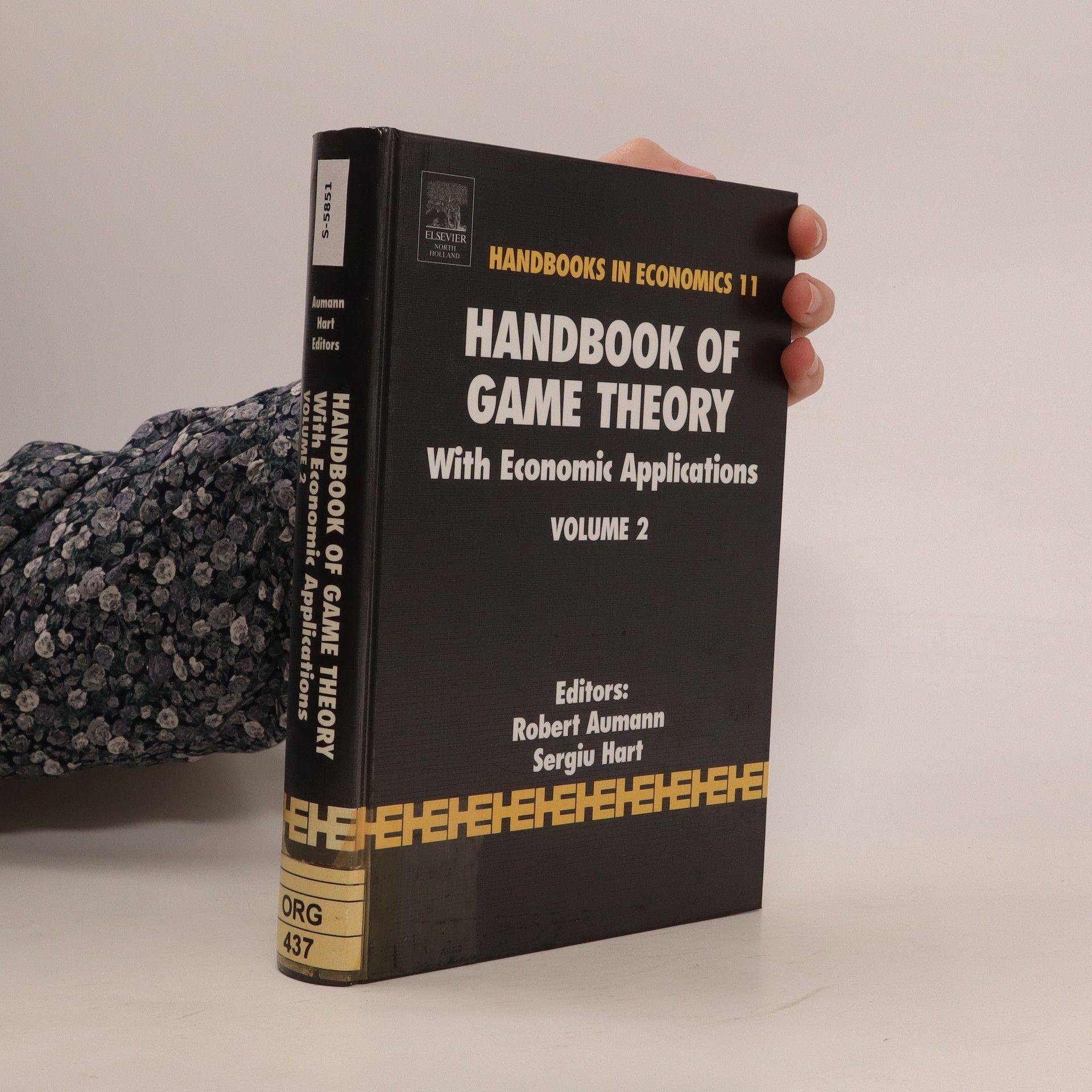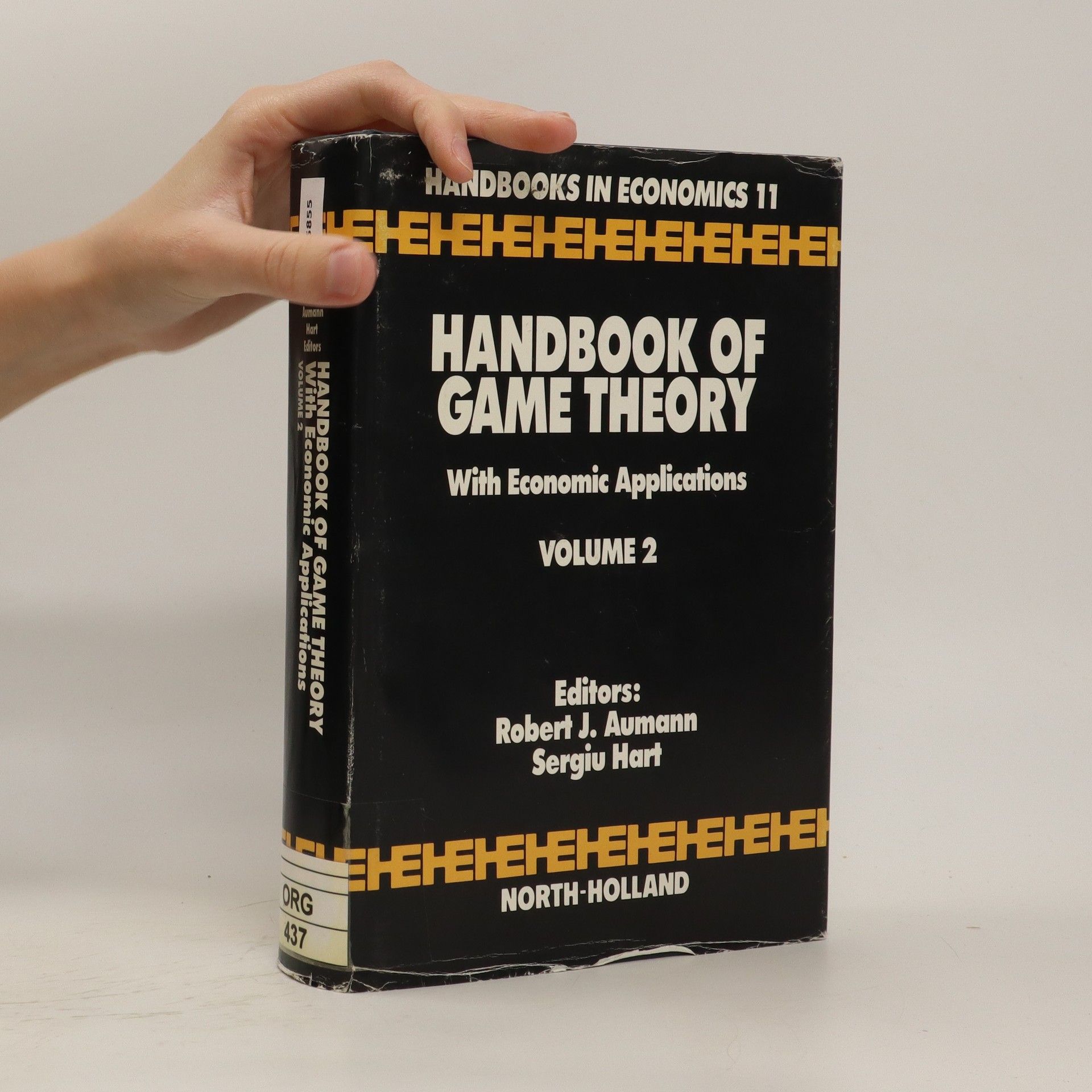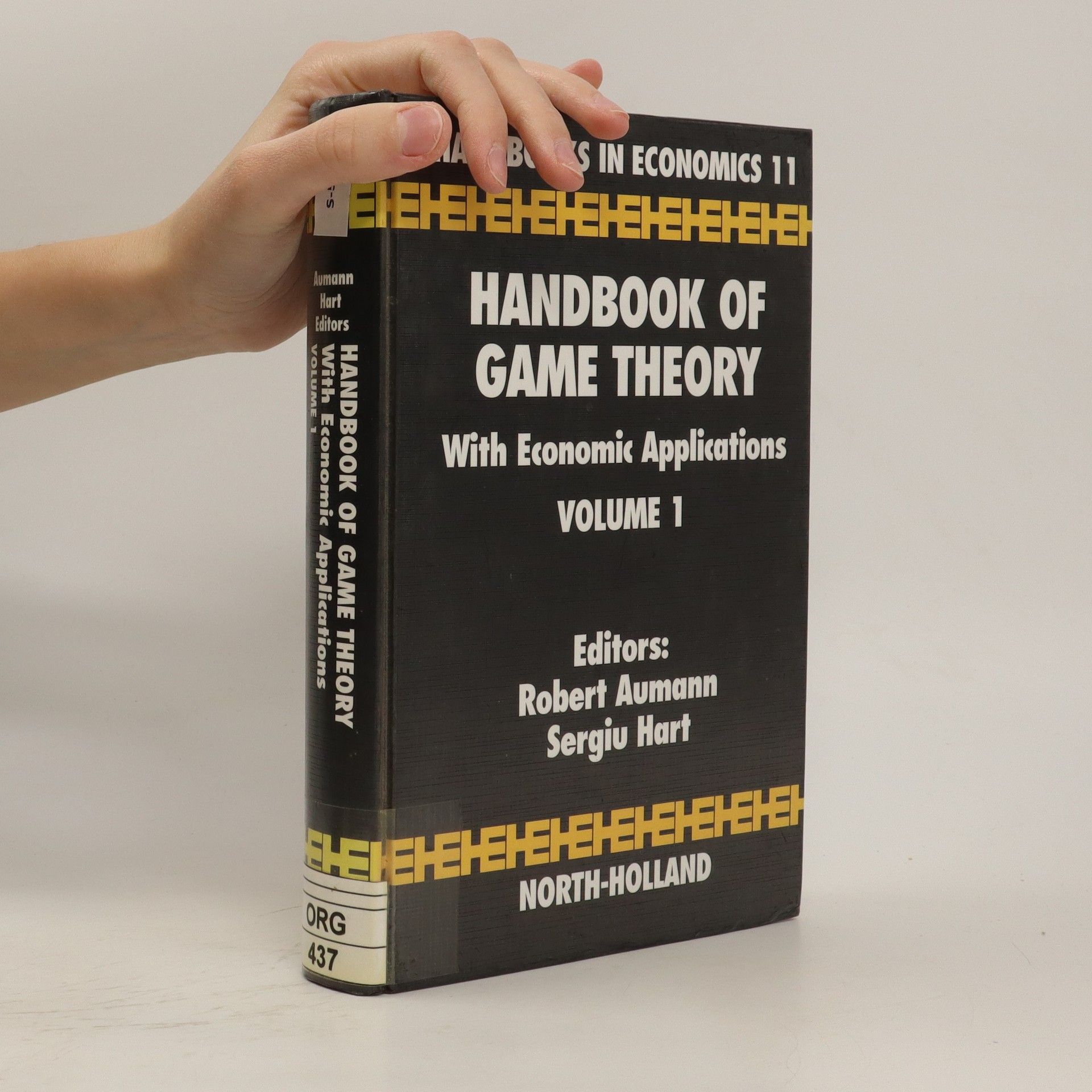Handbook of Game Theory with Economic Applications 3
- 832 stránek
- 30 hodin čtení
This is the third volume of the Handbook of Game Theory with Economic Applications. Since the publication of multi-Volume 1 a decade ago, game theory has continued to develop at a furious pace, and today it is the dominant tool in economic theory. The three volumes together cover the fundamental theoretical aspects, a wide range of applications to economics, several chapters on applications to political science and individual chapters on applications to disciplines as diverse as evolutionary biology, computer science, law, psychology and ethics. The authors are the most eminent practitioners in the field, including three Nobel Prize winners. The topics covered in the present volume include strategic ("Nash") equilibrium; incomplete information; two-person non-zero-sum games; noncooperative games with a continuum of players; stochastic games; industrial organization; bargaining, inspection; economic history; the Shapley value and its applications to perfectly competitive economies, to taxation, to public goods and to fixed prices; political science; law mechanism design; and game experimentation.



